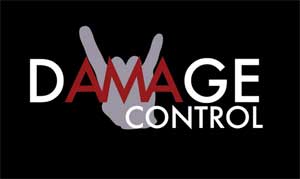By Rose O. Sherman, EdD, RN, FAAN
 The other day, I was talking with a young emerging nurse leader who I am mentoring. She is extremely talented and has great ambitions. She also has the wisdom to see that she has also engendered some jealousy among her peers. “I don’t want to make mistakes that will damage my career,” she observed. What do I need to be careful not to do this. This is a great question that few nurse leader ask as they begin their leadership careers. Leadership is both an art and a science. The art of leadership is learning how to manage relationships with others. It is often said that it is these soft skills that can be the hard skills to learn.
The other day, I was talking with a young emerging nurse leader who I am mentoring. She is extremely talented and has great ambitions. She also has the wisdom to see that she has also engendered some jealousy among her peers. “I don’t want to make mistakes that will damage my career,” she observed. What do I need to be careful not to do this. This is a great question that few nurse leader ask as they begin their leadership careers. Leadership is both an art and a science. The art of leadership is learning how to manage relationships with others. It is often said that it is these soft skills that can be the hard skills to learn.
Marshall Goldsmith in his insightful book What Got You Here Won’t Get You There, points out that although we may work hard, some of our behaviors can keep us from moving to the next level. Ironically, they may be behaviors that allowed us to achieve at the level that we are currently working but will now hold us back. In my mentee’s case, she recognizes that she has had good relationships with her peers up to this point but the mood is shifting. She has been singled out in her organization as being very talented and identified as an up and coming leader. It is important that she manages her behavior well. There are behaviors that can lead to failure in a leadership position. Marshall points out the following 20 behaviors that can damage your career:
1. Winning too Much-the need to win in all situations at all costs.
2. Adding too Much Value-the overwhelming desire to add our two cents to every discussion.
3. Passing Judgment-the need to rate others and impose our standards on others.
4. Making Destructive Comments-injecting needless sarcasm and cutting remarks into conversations.
5. Starting with “No” “But” or “However”-these words send a message that I am right and you are wrong.
6. Telling the World how Smart We Are-the need to show people we’re smarter than they think we are.
7. Speaking when Angry-demonstrating emotional volatility.
8. Negativity-explaining why something won’t work.
9. Withholding Information-the refusal to share information in order to maintain an advantage over others.
10. Failing to give Proper Recognition-the inability to praise and reward.
11. Claiming Credit We Don’t Deserve-overestimating our contribution to any success.
12. Making Excuses-the need to reposition annoying behaviors as a permanent fixture so people will excuse us.
13. Clinging to the Past-the need to deflect blame from ourselves and onto events and people in the past.
14. Playing Favorites-failing to see we are treating someone unfairly.
15. Refusing to Express Regret-the inability to take responsibility for our actions, admit we are wrong and recognize how our actions affect others.
16. Not Listening-the most passive-aggressive form of disrespect of colleagues.
17. Failing to Express Gratitude-having bad manners.
18. Punishing the Messenger-attacking those who try to help us.
19. Passing the Buck-the need to blame everyone but ourselves.
20. An Excessive Need to be “Me”-exalting our faults as virtues simply because they’re who we are.
This is a pretty extensive list and it is likely that all of us already have one or more of these behaviors that we need to work on. It can be hard to change behavior. The first step comes with acknowledgement and then a willingness to develop a personal improvement plan. The good news here is that research shows that leaders who are open to feedback as my mentee is and are willing to do personal reflection on their behaviors can avoid these career damaging mistakes.
Read to Lead
Goldsmith, M. (2007). What Got You Here Won’t Get You There. New York: Hyperion.
© emergingrnleader.com 2012


 LinkedIn
LinkedIn Instagram
Instagram